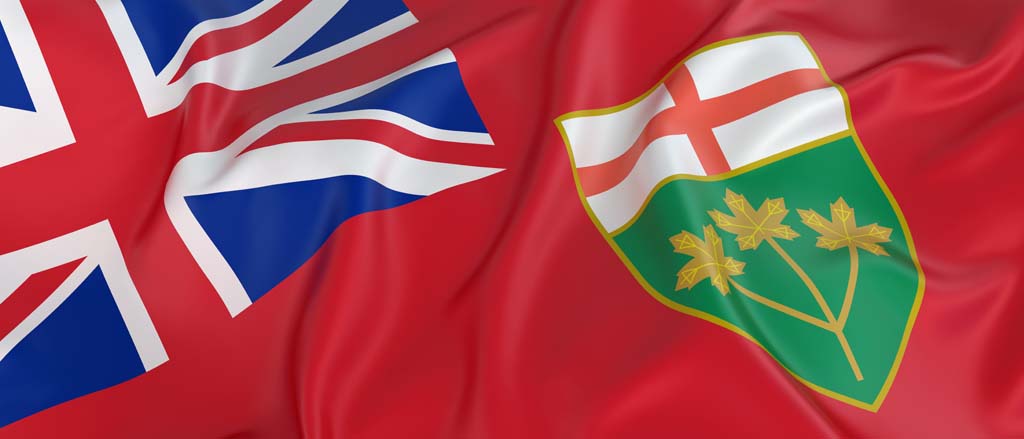
What employers need to know about Ontario payroll legislation
As your business’ payroll expert, you already know that legislative requirements differ between provinces and territories in Canada. What we know is that information can be cumbersome to find, and is rarely consolidated into one handy reference.
If you’re an Ontario-based business or an organization with employees in Ontario, there are a few particular legislative components to your employees’ payroll where straightforward and centralized info would surely be spectacular. Well, read on… because we’ve got you covered!
Ontario Employer Health Tax (EHT)
There are five provinces in Canada with EHT: British Columbia, Manitoba, Québec, Newfoundland and – of course – Ontario. According to the Province of Ontario, this “is a payroll tax on remuneration (for example, salaries, wages, bonuses, taxable benefits, stock options, etc.) that employers in Ontario provide to current and former employees. The purpose of this tax is to assist in providing the government with revenue to fund health care in Ontario.” And while there are some similarities between provincial EHTs, the parameters of the legislation between those jurisdictions is different.
Here’s what Ontario-based businesses or businesses with employees in Ontario need to know:
- EHT is applicable for businesses who exceed $1 million in Ontario payroll remuneration. Those under $1 million are exempt from EHT in Ontario.
- The rate for EHT is 1.95% for businesses who exceed $1 million in Ontario payroll, but the rate changes if the businesses exceed $5 million.
Any business legislatively required to contribute EHT can make this process simpler by using a solution like the Payworks Payroll application. Not only can EHT calculations and remittances be done for you when applicable, but annual reports for EHT can be generated as well. We really streamline the process!
Payworks pro tip – take a look at your year-end reports. If your Ontario payroll remuneration is close to reaching $1 million, you can register for an EHT account. When your business becomes eligible to contribute to EHT, you’ll already be set up and can avoid any delays! If any assistance is required, your dedicated Client Service Representative (CSR) can walk you through the process.
Workplace Safety and Insurance Board (WSIB) Ontario
Ontario employers are subject to WSIB premiums, a provincial wage loss replacement plan. According to WSIB, “your premiums go towards helping people who experienced a workplace illness or injury by providing funds to replace lost wages, payment of health care costs, a support team of caring professionals who aim to get your employee back to work, and benefits to the family or dependents of people who suffered a work-related death.” The rates at which WSIB is calculated depend on your business classification and your individual rate, and your premium is calculated by your business’ gross insurable earnings multiplied by your premium rate divided by 100.
Here are the insurable earnings and reporting and payment frequency you need to know for WSIB Ontario:
- $1 million or more in insurable earnings = monthly reporting and payment
- $20,000 - $999,999 in insurable earnings = quarterly reporting and payment
- Less than $20,000 in insurable earnings = annual reporting and payment
An outsourcing solution can simplify this process as well. Much like the process we outlined for EHT, WSIB account numbers can be entered into Payworks’ Payroll application, which tracks accessible earnings and can calculate those premiums; we also remit those premiums on behalf of our clients. Plus, our team can create additional WSIB reports for clients who request it.
Minimum wage and overtime
Federal and provincial legislation determines that all employees are eligible to receive minimum wage. By definition, it’s the lowest rate at which an employer can legally pay its employees and is not dependent on whether the employee has full-time, part-time or casual employment, or if they’re paid salary, commission, or a flat, piece, or hourly rate. The minimum wage rate for employees varies by province and territory, and it’s the employer’s responsibility to ensure they’re adhering to the legislation in their own jurisdiction.
For employees working in the Province of Ontario, there are different minimum wage rates for students, hunting guides and more in addition to the general rate. Here’s what employers need to know about minimum wage in Ontario:
- There is a general minimum wage rate that is set to increase on October 1, 2023 and October 1, 2024.
- There’s a student minimum wage rate that’s set to increase on October 1, 2023 and October 1, 2024. This rate is for those under the age of 18 who work 28 hours a week or less when school is in, or who work during a school break or summer holidays.
- There are two different minimum wage rates for hunting, fishing and wilderness guides, both of which are set to increase on October 1, 2023 and October 1, 2024. One rate is for those who work less than five consecutive hours in a day, and the other rate is for those who work five or more hours in a day whether or not those hours are consecutive. For more information on who qualifies and who is exempt from this minimum wage rate, visit: https://www.ontario.ca/document/your-guide-employment-standards-act-0/minimum-wage
- There’s a minimum wage rate for homeworkers that’s set to increase on October 1, 2023 and October 1, 2024. For more information on who qualifies for this minimum wage rate, visit: https://www.ontario.ca/document/your-guide-employment-standards-act-0/minimum-wage
- Until December 31, 2021, there was a different minimum wage rate for liquor servers in Ontario. As of January 1, 2022, the minimum wage rate for liquor servers is the same as general minimum wage.
An exception to minimum wage rates occurs when a worker exceeds their normally scheduled hours and qualifies for overtime rates. Like minimum wage, overtime rates in Canada vary by province and territory.
Ontario employers should be aware of the legislation for overtime rates in their province particularly because it applies when an employee works in excess of 44 hours in each workweek – as opposed to other jurisdictions where the legislation dictates that it’s in excess of 40 hours in each workweek.
- “An employer shall pay an employee overtime pay of at least one and one-half times his or her regular rate for each hour of work in excess of 44 hours in each week or, if another threshold is prescribed, that prescribed threshold,” - Ontario.ca.
Payworks pro tip: for an overview of overtime and the steps to consider in making a strategic plan that clearly defines overtime, visit: https://blog.payworks.ca/overview-of-overtime-employers-should-have-a-strategic-plan-that-clearly-defines-overtime.
Ontario’s Infectious Disease Emergency Leave (IDEL) and other leaves in the Employment Standards Act (ESA)
IDEL was first introduced to provide for paid and unpaid leaves for employees impacted by COVID-19. According to the Province of Ontario, “employees may be eligible for up to three days of paid infectious disease emergency leave until March 31, 2023”, and “there is no specified limit to the number of days an employee can be on unpaid infectious disease emergency leave.” What’s significant to note regarding IDEL is that it ended on March 31, 2023.
Ontario’s Employment Standards Act (ESA) outlines various types of leaves – like pregnancy and parental leave, sick leave, domestic or sexual violence leave, organ donor leave, family caregiver leave, etc. What’s important for Ontario employers to know is whether the type of leave is paid or unpaid. The parameters for each type of leave can be found in the ESA by visiting: https://www.ontario.ca/document/your-guide-employment-standards-act-0.
Public holidays
Public holidays, otherwise known as statutory holidays, are the days recognized by legislation where most employees who qualify are entitled to take the day off work with pay. Which days are observed as public holidays differ between province and territory, as well as if the workplace is federally regulated or is dependent on the industry type (for example, retail).
In Ontario, there are nine public holidays, which include:
- New Year’s Day
- Family Day
- Good Friday
- Victoria Day
- Canada Day
- Labour Day
- Thanksgiving Day
- Christmas Day
- Boxing Day
Simcoe Day is not legislated as a public holiday, but some employers optionally grant their employees a day off. Under the ESA, employers in Ontario aren’t required to grant their employees a day off for Remembrance Day. However, some employers elect to give their employees a holiday on November 11. Whether or not businesses close is completely at the employer’s discretion.
Handy, consolidated resources for Canadian payroll legislation are a payroll professional’s dream! We’ve got you covered so you can stay informed on payroll legislation changes with the Payworks Payroll Guide: a comprehensive resource that contains both legislative and regulatory information to keep you up to date on the payroll information needed to pay employees accurately. To download your free copy, visit: https://info.payworks.ca/en-ca/payroll-guide-for-canadian-business.
Key topics in this article:
ResourcesPayroll ResourcesBusiness OwnerHR ManagementSMEFranchiseeHospitalityPayroll ManagementLegislationThese articles are produced by Payworks as an information service. They are not intended to substitute professional legal, regulatory, tax, or financial advice. Readers must rely on their own advisors, as applicable, for such advice.














